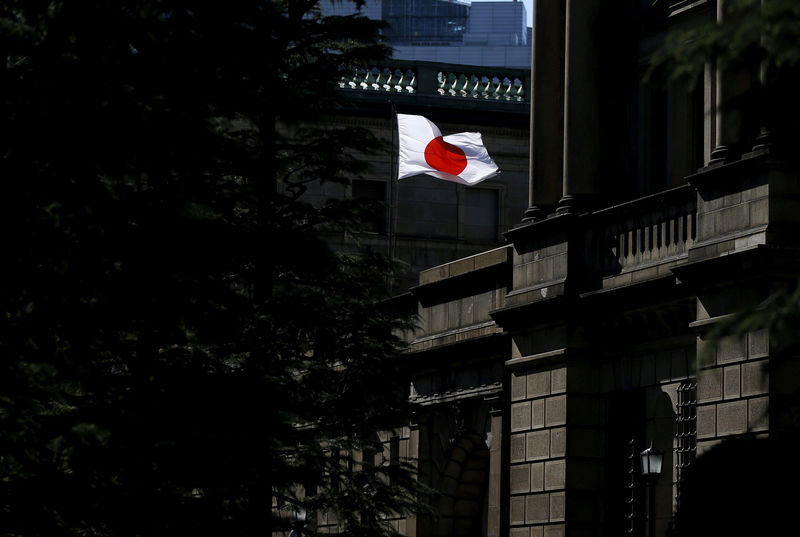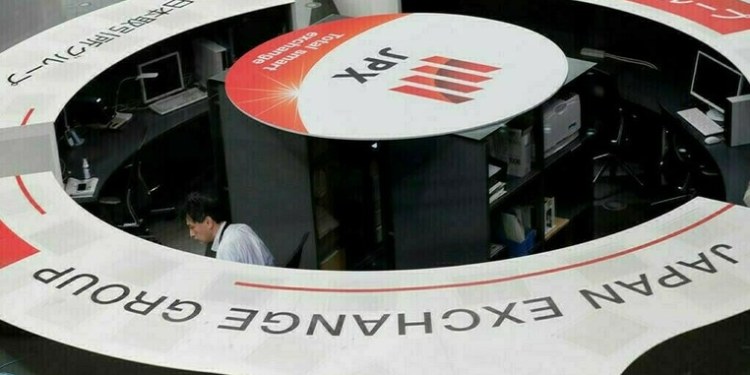 © Reuters. FILE PHOTO: A Japanese flag flutters on the Bank of Japan building in Tokyo
© Reuters. FILE PHOTO: A Japanese flag flutters on the Bank of Japan building in TokyoBy Stanley White
TOKYO (Reuters) – Japanese companies’ expectations for inflation over the next year receded slightly, a Bank of Japan survey showed on Tuesday, after the central bank conceded it will take some time to reach its inflation target.
Companies surveyed by the Bank of Japan expect consumer prices to have risen 0.8 percent a year from now, slightly below their projection of a 0.9 percent increase three months ago.
Firms expect consumer prices to have risen by an annual 1.1 percent three years from now and 1.1 percent five years ahead, unchanged from three months ago.
The BOJ kept policy steady at a meeting in September after taking steps in July to make its monetary framework more sustainable, such as allowing bond yields to move in a larger range around its zero percent target.
Bank of Japan Governor Haruhiko Kuroda said the BOJ made this decision in response to fears over the side-effects of its prolonged easing.
He has since acknowledged that inflation is taking longer loner than expected to accelerate.
The BOJ’s board has been divided between those who fret over the rising costs of prolonged easing such as low bond market liquidity, and those who insist the BOJ should do more to drive inflation towards its 2 percent target.
The nationwide core consumer price index, which includes oil products but excludes volatile fresh food costs, rose a modest 0.9 percent in August from a year earlier, remaining distant from the central bank’s objective.
The BOJ survey of corporate price expectations comes one day after the tankan showed rising raw material costs and a string of natural disasters that disrupted production sent business confidence at Japan’s big manufacturers to its lowest in more than a year.
The BOJ’s next policy meeting ends on October 31.
Fusion Media or anyone involved with Fusion Media will not accept any liability for loss or damage as a result of reliance on the information including data, quotes, charts and buy/sell signals contained within this website. Please be fully informed regarding the risks and costs associated with trading the financial markets, it is one of the riskiest investment forms possible.
Source: Investing.com




























